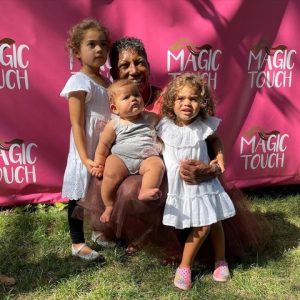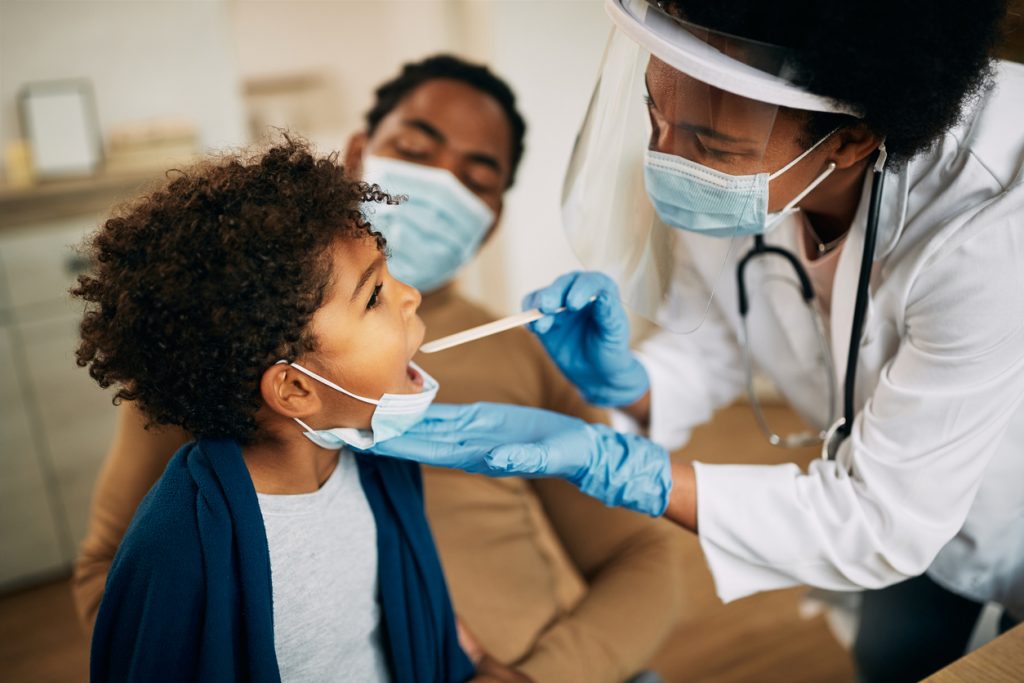Only 10% of rare diseases have an FDA-approved therapy. This sobering statistic highlights why research is so imperative for patients with rare diseases. Clinical trials can be a crucial opportunity to access life-saving treatments. However, African-American and Latino patients with rare diseases face significant underrepresentation in clinical trials. This lack of representation results in drugs being developed that aren’t proven safe or effective across different populations.
There are so many facets involved in these inequities that it can be hard to know where to begin. “It’s like layers of an onion,” said Dr. Susan Vadaparampil, Senior Member and Associate Center Director of Community Outreach, Engagement & Equity at Moffitt Cancer Center. “It’s incredibly complex, but now there is such a momentum to say what are we going to do about it?”
Listening and adapting to community needs
Moffitt researchers wanted to understand how they could make trial participation easier for patients. They formed an advisory panel of stakeholders across the center to look at what each can contribute to improving equity in clinical research. The Clinical Trial Office, for example, strives to answer questions, such as:
- Is our trial portfolio aligned with our diverse patient needs?
- Are we making consent forms available in commonly spoken languages?
- Are our medical interpreters knowledgeable about translating language about clinical trials?
- How are our social workers sharing ready resources like lodging and transportation support?
At Moffitt, partnership is at the heart of this work. “We need to be there for the community in the long haul,” said Dr. Vadaparampil. “For us, not everything we do is about having patients come to the center. We look at what we can do to lift up the community.”
Researchers at Moffitt have been conducting stakeholder interviews to assess the priorities of patients.
“We need to hear from people who make up the fabric of the community we live in,” said Dr. Vadaparampil. “We focus so much on cancer but we need to also look at the bigger picture. What we’re offering needs to fit into the context of the daily lives of the people we serve, which is why that bidirectional exchange is so important for us. There has to be a mutual benefit to make a long-term impact.”
During these discussions it became clear that people in the community wanted more health and wellness programs, which led to the development of new initiatives focused on prevention and early detection.
The center also formed an advisory panel of members from local neighborhoods who could provide honest feedback about how their community outreach was perceived and how they could improve upon it.
These conversations are helping break down barriers. One recent success was a study Moffitt designed that could be done entirely from home. Researchers were looking for African-American women diagnosed with early onset breast cancer to understand the contribution of genetic risk in terms of diagnosis and outcomes. All the study assessments were done online or by phone with help from study team members. The researchers mailed genetic test kits to trial participants to collect saliva samples, and conducted genetic counseling before and after the test.
“By being respectful of people’s time and proactively addressing barriers they may encounter, we had a very good participation rate, and recruited more than 500 women to the trial, all of whom are African-American,” said Dr. Vadaparampil. “And now we have a compelling answer about how much inherited genetics contributes to risk of early onset breast cancer.”
When it comes to research inclusion, Moffitt looks beyond therapeutic trials. Its research programs encompass everything from new screening strategies to multi-level interventions in community settings to increasing uptake of the HPV vaccine. By normalizing that research is about education and learning, they are building trust.
Representatives from Moffitt have also been lobbying for the Cancer Patient Equity Act, a federal bill designed to help patients with rare cancers. If passed, the Act would mandate that Medicare, Medicaid, and the Children’s Health Insurance Program cover molecular diagnostics and genetic counseling at the time of diagnosis – which can accelerate diagnosis and open the door to targeted therapies.
The center is also working on practical challenges that are barriers to high-quality care. One area is related to the way Medicaid is administered. Moffitt Cancer Center may be out of network for Floridians on Medicaid’s Managed Care plan. Center administrators are examining novel ways to change this policy issue to improve access. This would bring more patients into the center and give more patients with rare and other cancers an opportunity to benefit from clinical trials.
Increasing trial access
Meanwhile, the National Organization for Rare Disorders is working to improve trial diversity by increasing access on a national scale. “Many different issues – including geographic, linguistic, cultural, and socio-economic factors – exist that tend to reduce diversity in clinical trials and lead to unfortunate inequities for patients,” said National Organization for Rare Disorders (NORD) Chief Medical and Scientific Officer Edward Neilan, MD, PhD. The NORD Rare Disease Centers of Excellence program consciously aims to address those factors, to make clinical trial enrollment easier and more equitable.
The network features 31 sites in multiple states, which should present patients with opportunities to enroll in clinical trials closer to their homes and serve diverse populations in a variety of regional settings. “Many of the centers already have experience and programs devoted to reaching out to medically underserved communities in their region,” Dr. Neilan said.
“NORD intends to identify best practices for community outreach and for equitable clinical enrollment at the centers where such practices have already been developed. We will share those best practices across all of the centers, to increase the ease and the diversity of enrollment in clinical trials across the network and throughout the country.”
Empowering patients
 TOUCH – The Black Breast Cancer Alliance is tackling this challenge from a different angle, showing Black women how representation equals power when it comes to clinical trials. When Ricki Fairley was diagnosed with triple-negative breast cancer, there were few treatment options available. She is thankful for two experimental drugs that saved her life. Ten years later, she is a fierce advocate for Black women facing this disease.
TOUCH – The Black Breast Cancer Alliance is tackling this challenge from a different angle, showing Black women how representation equals power when it comes to clinical trials. When Ricki Fairley was diagnosed with triple-negative breast cancer, there were few treatment options available. She is thankful for two experimental drugs that saved her life. Ten years later, she is a fierce advocate for Black women facing this disease.
“We want to be everywhere Black women live, work, play, and pray,” said Fairley, CEO and Co-Founder of TOUCH. The organization spreads its message through churches, sororities, community organizations, hair salons, and more, encouraging Black women to participate in clinical trials to set a new standard of care.
The Alliance secured funding for the #BlackDataMatters research program, a series of quantitative and qualitative studies into the barriers to more inclusive clinical trials. The studies revealed many doctors weren’t offering trial opportunities to their Black cancer patients. At the same time, researchers found Black breast cancer patients turned to fellow survivors for advice, and often found myths perpetuated in the breast cancer community that made them fear clinical trials. Most of the information available online about trials was little help either.
“If you google anything about clinical trials, it’s very scientific and it’s scary, and this festers all these mistrusts in Black women,” Fairley said. “Nobody is talking to them about trials in ways that make them feel comfortable, secure, and necessary.”
A former Coca-Cola marketing executive, Fairley launched the When We Tri(al) movement (www.whenwetrial.org to save Black lives through research. She essentially flipped the narrative; instead of Black women being fearful of trials, she showed the power that trial participation could bring to women. Greater participation in clinical trials will mean more Black women will have access to emerging and often life-saving treatments that are not available anywhere else. And they will be helping researchers answer essential questions that may help future generations.
Black women are 41% more likely to die of breast cancer than white women. “A major reason is the drugs we have now were not adequately tested on Black bodies,” explained Fairley. “We cannot change that until more Black women participate in clinical research. We’re working to help Black women understand that trials are safe, and that they can have better outcomes and that they will get the standard of care. And we give them a hug in the process. They need to feel good about what they’re doing for their bodies and know it’s a good thing.”
To help make trial access less daunting, TOUCH partnered with the digital platform Ciitizen to make it easy for patients to digitize their medical records. Through a secure site, Ciitizen alerts patients to trials that match their specific genetic data. TOUCH also encourages patients with triple negative or metastatic breast cancer to contact them if they would like information or just want to talk about clinical trials.
“Science is the key to a better standard of care,” said Fairley. “I tell women, if you’re not going to do it for yourself, do it for your daughter or your granddaughter.”
Learn more about rare disease education.
Have any questions or want to connect? Email us at digital@platformq.com.

